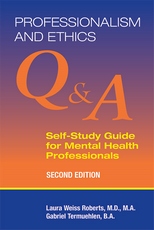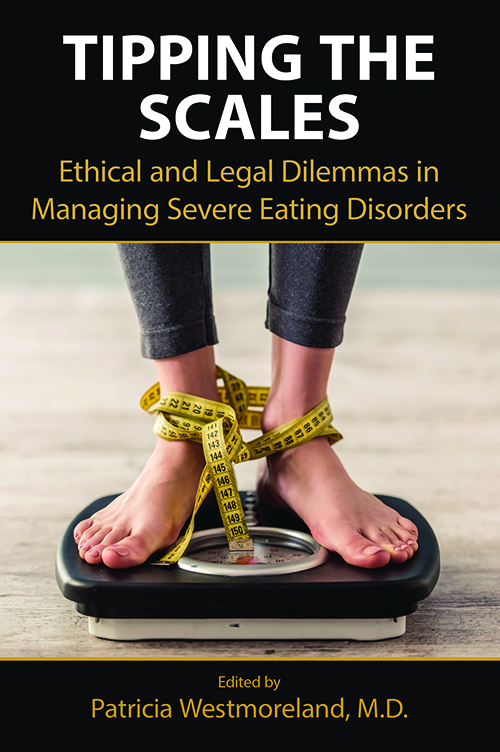Principles and Practice of Child and Adolescent Forensic Mental Health
View Pricing
Description
When care of younger patients raises thorny legal questions, you need answers you can trust: that's why this book belongs on every clinician's reference shelf. Principles and Practice of Child and Adolescent Forensic Mental Health is a timely and authoritative source that covers issues ranging from child custody to litigation concerns as it walks clinicians through the often-confusing field of depositions and courtroom testimony.
The book expands on the 2002 volume Principles and Practice of Child and Adolescent Forensic Psychiatry winner of the 2003 Manfred S. Guttmacher Award, to meet pressing twenty-first-century concerns, from telepsychiatry to the Internet, while continuing to cover basic issues, such as forensic evaluation, psychological screening, and the interviewing of children for suspected sexual abuse, that are important to both new and experienced practitioners. Many of its chapters have been entirely rewritten by new authors to provide fresh insight into such topics as child custody; juvenile law; abuse, neglect, and permanent wardship cases; transcultural, transracial, and gay/lesbian parenting and adoption; and the reliability and suggestibility of children's statements. It also includes significant material not found in the previous volume:
- Two chapters on special education offer an introduction to screening instruments and help practitioners determine a child's potential need for special education programs and services.
- A chapter on cultural competence helps readers improve the accuracy and responsiveness of forensic evaluations and minimize the chance of an unjust outcome resulting from misguided expert opinion.
- The section on youth violence features three new chapters—Taxonomy and Neurobiology of Aggression, Prevention of School Violence, and Juvenile Stalkers—plus a newly written chapter on assessment of violence risk, offering guidance on how to confront problems such as bullying and initiate effective family interventions.
- A chapter on psychiatric malpractice and professional liability addresses these legal concerns with an eye toward cases involving minors.
- A chapter on psychological autopsy covers evaluation of the circumstances surrounding pediatric suicides, describing various types of equivocal deaths and discussing legal issues such as admissibility of the autopsy in court.
- A newly written chapter on the Internet expands the previous book's focus on child pornography to help practitioners deal with issues ranging from online threats to emotional and legal consequences of interactions in cyberspace.
This is a valuable reference not only for practitioners in psychiatry and the mental health field but also for attorneys and judges. It opens up a field that may be too often avoided and helps professionals make their way through legal thickets with confidence.
Contents
- Contributors
- Preface
- Acknowledgments
- PART I: Basics
- Chapter 1. Introduction to the Legal System
- Chapter 2. Ethics of Child and Adolescent Forensic Psychiatry
- Chapter 3. Introduction to Forensic Evaluations
- Chapter 4. Testifying: The Expert Witness in Court
- Chapter 5. Special Education: Screening Tools, Rating Scales, and Self-Report Instruments
- Chapter 6. Psychological Testing in Child and Adolescent Forensic Evaluations
- Chapter 7. Forensic Telepsychiatry
- Chapter 8. Cultural Competence in Child and Adolescent Forensic Mental Health
- PART II: Legal Regulation of Practice
- Chapter 9. Legal Issues in the Treatment of Minors
- Chapter 10. Legal Aspects of Intellectual Disability
- PART III: Child Custody
- Chapter 11. Child Custody Evaluation
- Chapter 12. Parenting Assessment in Abuse, Neglect, and Permanent Wardship Cases
- Chapter 13. Children in Foster Care
- Chapter 14. Adoption
- Chapter 15. Special Issues in Transcultural, Transracial, and Gay and Lesbian Parenting and Adoption
- PART IV: Child Abuse
- Chapter 16. Reliability and Suggestibility of Children's Statements: From Science to Practice
- Chapter 17. Interviewing Children for Suspected Sexual Abuse
- Chapter 18. Forensic Issues in Munchausen by Proxy
- Chapter 19. Forensic Issues and the Internet
- PART V: Youth Violence
- Chapter 20. Taxonomy and Neurobiology of Aggression
- Chapter 21. Assessing Violence Risk in Youth
- Chapter 22. Prevention of Youth Violence
- Chapter 23. Prevention of School Violence
- Chapter 24. Juvenile Stalkers
- PART VI: Juvenile Offenders
- Chapter 25. Overview of Juvenile Law
- Chapter 26. Juvenile Waiver and State-of-Mind Assessments
- Chapter 27. Assessment and Treatment of Juvenile Offenders
- Chapter 28. Sexually Aggressive Youth
- PART VII: Civil Litigation
- Chapter 29. Civil Litigation and Psychic Trauma
- Chapter 30. Malpractice and Professional Liability
- Chapter 31. Psychological Autopsy in Children and Adolescents
- Chapter 32. Evaluations for Special Education
- Chapter 33. Clinical and Forensic Aspects of Sexual Harassment in School-Age Children and Adolescents
- Index
Contributors
- Diana K. Antia, M.D.
Peter Ash, M.D.
Catherine C. Ayoub, R.N., Ed.D.
Sharmila Bandyopadhyay, M.Ed.
Eraka P.J. Bath, M.D.
Elissa P. Benedek, M.D.
Stephen Bates Billick,M.D.
R. James R. Blair, Ph.D.
Randy Borum, Psy.D., ABPP
Brenda Bursch, Ph.D.
Charles R. Clark, Ph.D., ABPP
Emil F. Coccaro, M.D.
Dewey G. Cornell, Ph.D.
Debra K. DePrato, M.D.
Megan Eliot, M.Ed.
Todd S. Elwyn, J.D., M.D.
James B. Gale, M.S.
Marisa A. Giggie, M.D., M.P.Aff.
Tracy D. Gunter, M.D.
Melvin J. Guyer, J.D., Ph.D.
James C. Harris, M.D.
Jack P. Haynes, Ph.D.
Thomas M. Horner, Ph.D.
Praveen Kambam, M.D.
Niranjan S. Karnik, M.D., Ph.D.
Sarah Kulkofsky, Ph.D.
Robert J. Levy, J.D.
Kamala London, Ph.D.
Pamela S. Ludolph, Ph.D.
JoAnn E. Macbeth, J.D.
Daryl Matthews, M.D., Ph.D.
Stephen W. Phillippi, Ph.D.
Kathleen M. Quinn, M.D.
Vivek S. Sankaran, J.D.
Robert B. Sanoshy, LCSW
Diane H. Schetky, M.D.
Herbert A. Schreier, M.D.
Charles L. Scott, M.D.
Jon A. Shaw, M.D.
Matthew F. Soulier, M.D.
Mary F. Spence, Ph.D.
Hans Steiner, M.D.
Humberto Temporini, M.D.
Wen Shing Tseng, M.D.
Frank E. Vandervort, J.D.
Jerry Wishner, Ph.D.
About the Authors
Elissa P. Benedek, M.D., is Adjunct Clinical Professor of Psychiatry at the University of Michigan Medical School in Ann Arbor.
Peter Ash, M.D., is Chief, Child and Adolescent Psychiatry; Director, Psychiatry and Law Service; and Associate Professor in the Department of Psychiatry and Behavioral Sciences at the Emory University School of Medicine in Atlanta, Georgia.
Charles L. Scott, M.D., is Chief, Division of Psychiatry and the Law, and Professor of Clinical Psychiatry, Department of Psychiatry and Behavioral Sciences, at the University of California–Davis School of Medicine.
Related Products
Carousel Control - items will scroll by tabbing through them, otherwise arrows can be used to scroll one item at a time








